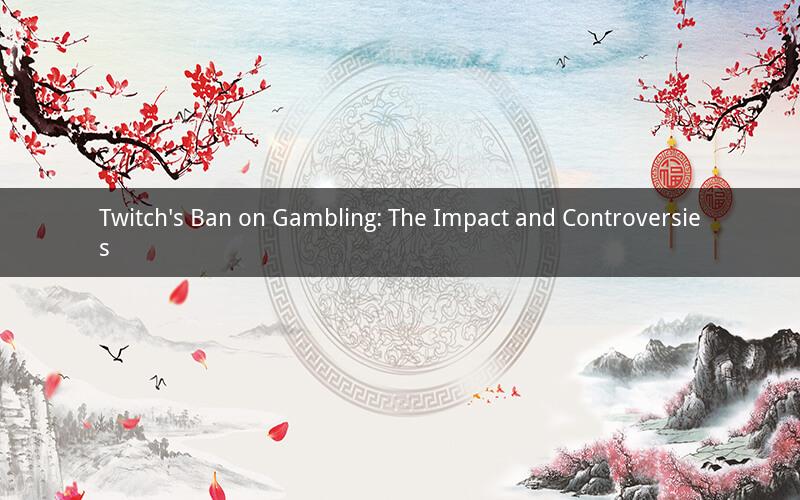
Twitch, the popular live streaming platform, has recently implemented a ban on gambling content. This decision has sparked a heated debate among the community, with some praising the move and others questioning its necessity. This article aims to explore the reasons behind the ban, its implications, and the ongoing controversies surrounding it.
1. Why did Twitch ban gambling?
Twitch's ban on gambling is primarily driven by the potential risks associated with the activity. According to Twitch, gambling content can lead to harmful gambling habits, especially among younger viewers who may be impressionable. The platform is committed to fostering a safe and positive environment for all users, and the ban is seen as a step towards achieving this goal.
2. The impact of the ban on Twitch's community
The ban on gambling has had a significant impact on the Twitch community. Many streamers who rely on gambling content for their livelihood have been affected, leading to a decrease in their viewership and income. On the other hand, the community has been divided, with some users supporting the ban and others opposing it.
3. The arguments for and against the ban
Proponents of the ban argue that it is necessary to protect young viewers from the potential dangers of gambling. They believe that by removing gambling content, Twitch can contribute to the prevention of gambling addiction and promote a healthier online environment.
Opponents of the ban, however, claim that it is an overreach of Twitch's authority. They argue that the platform should not dictate what content is suitable for its users, and that the decision to gamble is ultimately a personal choice. They also argue that the ban could harm the livelihoods of streamers who rely on gambling content for their income.
4. The ongoing controversies
Despite the ban, controversies continue to surround Twitch's decision. Some users argue that the ban is not comprehensive enough, as it does not address other potentially harmful content, such as adult material. Others are concerned about the potential for censorship, as the ban could set a precedent for other types of content.
5. The future of gambling on Twitch
The future of gambling on Twitch remains uncertain. While the ban is currently in place, it is possible that Twitch may reconsider its stance in the future. This could be influenced by various factors, such as changes in the legal landscape, public opinion, and the platform's own policies.
In conclusion, Twitch's ban on gambling has generated a significant amount of controversy. While the decision was made with the best intentions of protecting its users, it has had a profound impact on the community. The debate over the ban is likely to continue, as both supporters and opponents argue for their respective viewpoints.
Here are five related questions and their answers:
1. Question: How has the ban affected streamers who rely on gambling content for their income?
Answer: The ban has significantly impacted these streamers, leading to a decrease in their viewership and income. Many have had to pivot to other types of content to sustain their livelihood.
2. Question: Are there any alternative platforms for gambling-related content?
Answer: Yes, there are alternative platforms where streamers can continue to produce gambling content. However, these platforms may not have the same level of popularity or resources as Twitch.
3. Question: Has the ban had any impact on Twitch's revenue?
Answer: It is difficult to determine the direct impact of the ban on Twitch's revenue. However, the ban may have led to a decrease in ad revenue from gambling-related content.
4. Question: Can Twitch's ban on gambling be seen as a form of censorship?
Answer: Some argue that the ban can be seen as a form of censorship, as it limits the types of content that streamers can produce. However, others believe that the ban is necessary to protect users from potential harm.
5. Question: Will the ban on gambling lead to a more restrictive content policy on Twitch?
Answer: The ban on gambling may lead to a more cautious approach to content moderation on Twitch. However, it is unclear whether this will result in a broader content policy that affects other types of content.